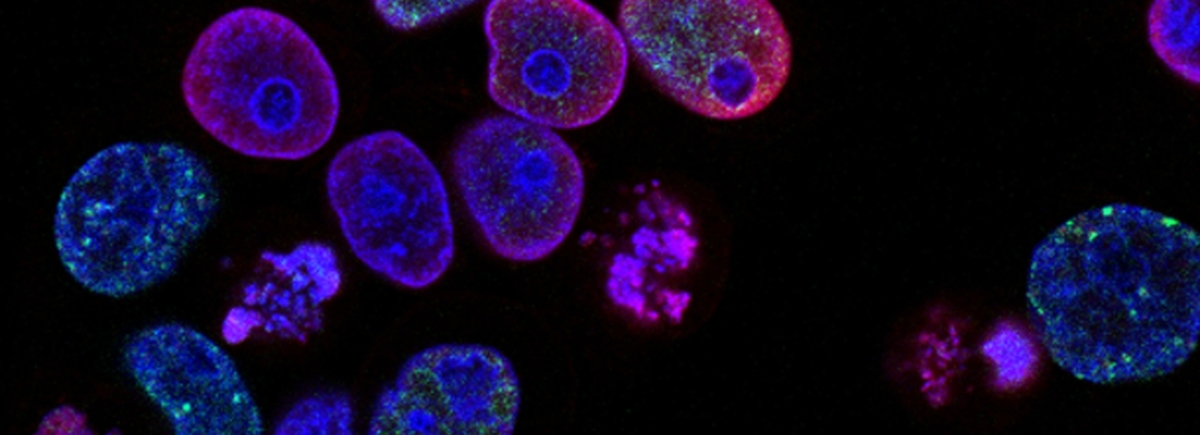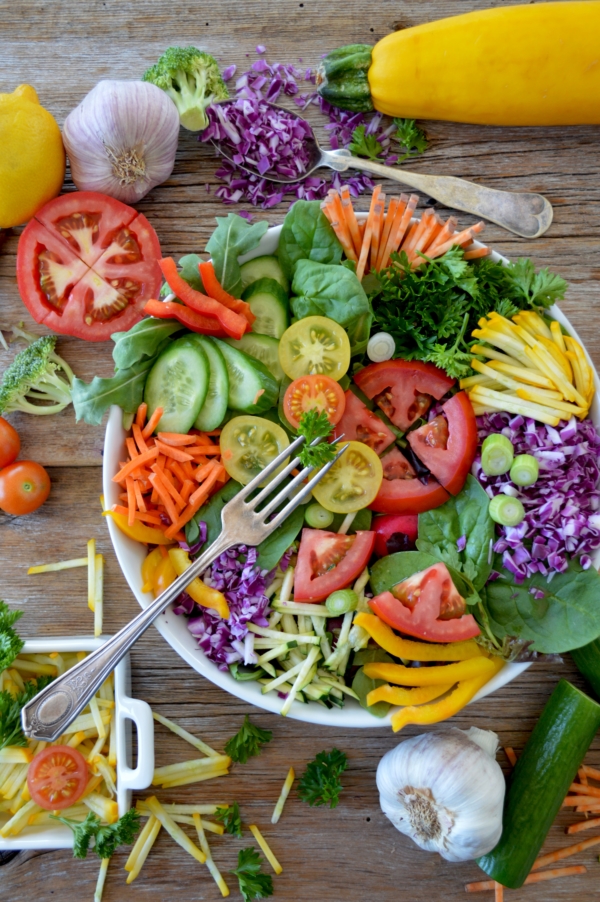Your Microbiome
An Immunity Powerhouse


As this title caught your attention you might have noticed that you have been hearing a lot more about the gut microbiome in the past few years. Other terms to describe it include the microbiota, gut bacteria, gut flora, good and bad bugs, and gut bacteria. Although the gut microbiome is not a new topic, this sudden attention on it is the result of an incredibly large body of scientific literature that has emerged over the past decade. Around 90% of the research we have today on the microbiome came out during this period and has shed some fascinating findings on what now can be understood as an immensely underestimated facet of the immune system. In fact, 70-80% of your entire immune defense resides within the confides of your small intestine (1). But this form of immunity is unique in that its strength is directly proportional to the dietary lifestyle decisions you make on a daily basis.
Why should this be important to you? Think about it this way, you might have a particular skill that outshines all the others, for example, you might be an incredible singer. You’re so good you give everyone in the room wild goosebumps when you hit those high notes! Obviously, it makes sense to focus on that skill since it is the strongest one you have. You wouldn’t spend too much time working on your calligraphy if you had a voice that would make Josh Groban look average. It’s no different with your immunity. If healthy is what you want to be, then you’ll want to focus on the strongest immune boosting mechanism in your body, your gut microbiome. In this article you will learn about how the microbiome responds to what we consume, why this is important, and simple steps to help you power up your immunity!
Foods that Destroy Your Good Bacteria
In order to better understand how to improve your gut microbiome’s strength you’ll need to understand what weakens it. There’s a huge variety of food on this planet. To attempt to understand every facet of each ingredient that makes it onto our plate can lead to information overload. Especially if you’re looking at the western diet, which is comprised of a huge variety of processed meats and foods. These are foods that have experienced significant alteration and add-ons from their original state. The base of these foods are usually lower in nutrient density to begin with (like corn, sugar, refined wheat, and starch) and to these are added a long list of difficult to pronounce preservatives, flavoring, fat, sugar, and chemical additives that serve non-nutritive roles such as stability and shelf-life. To simplify the matter, anything coming to you in a box or bag that doesn’t look like something you can pick off a tree or pull out of the dirt is most likely a product that will damage your gut microbiota.
Processed meats and dairy, like salami and ice cream, along with the endless list of items like chips, candy bars and sodas are appropriately termed “junk food”. These foods cause “dysbiosis” or growth of bad bacteria and the destruction of good bacteria (2).
Once upon a time I used to think the term “junk food” sounded quite derogatory, after all, it was food, and food should be respected, right? But when I learned the definition of food, my opinion on this matter changed. According to the Oxford Dictionary, food is described as “any nutritious substance that people or animals eat or drink or that plants absorb in order to maintain life and grow.” Food at its core is something that promotes the miracle of growth. Noting this, let’s go back to the term junk food.
Another word for junk or junky is worthless. The body is dependent on valuable key nutrient components so that it can build tissue, utilize oxygen, remove waste, manufacture energy through the process of metabolism and many other roles that make you into a well-functioning and hygienic being. The further your food is from its natural state the harder it is for your body to effectively extract and utilize the key vitamins, minerals and nutrients it needs to carry out these functions. Which basically means, “foods” that contain little to no nutrient value are in fact “worthless” to your system, which is why I believe the term “junk food” is in fact the perfect description for these products. Instead of promoting growth and homeostasis they promote inflammation, destroy your good bacteria, and wreak havoc on your metabolic system.
On What Does Your Gut Bacteria Thrive?
You’ve heard the saying “You are what you eat,” but it’s more along the lines of “You are what your gut microbiome eats.” And it thrives, to a large extent, on an abundance of one main thing: fiber. Your gut microbiome is responsible for helping to break down the food that you eat so that it can be properly absorbed into your blood stream. In other words, no matter how well you think you might be eating, if your gut microbiome is damaged or struggling this can impair your absorption of those nutrients, almost making their consumption a waste. And in some cases, dysbiosis can be so bad that it can cause serious nutrient deficiencies.
Now, this is important, it’s not about being “vegan” or “paleo”, or “keto”, it’s about FIBER. You can live on cookies and potato chips and correctly call yourself a vegan, since both can be free of animal products, but how healthy do you think a diet like that would be? We need fiber, especially soluble fiber. Good examples of these types of fibers include oat bran, barley, nuts, seeds, beans, and those found in fruits and vegetables. Terms and diet regimens are just a façade, what makes all the difference is the amount and quality of plant-based foods that you include in your lifestyle.
So how does it all work? The human intestine contains trillions of these symbionts and all they want to do is find some dietary fiber to chow down on and ferment, which in turn produces protective properties (such as Butyrate) against pathogens which contributes to the strength of one’s immunity. Studies show that following a strict diet high in plant-based foods for just one month has a huge impact on the decrease of the bad bacteria and up-regulation of the good bacteria (3). The speed at which we see these improvements says volumes about the body’s immunity and its ability to heal itself.
Prebiotics and Probiotics, What’s the difference? Why is It Important?
Now that you know a little more about what the microbiome needs to thrive, let’s take a moment and touch on prebiotics and probiotics. You’ve probably come across a variety of advertisements and promotions online on how probiotics in the form of incapsulated supplements can improve your digestion and the health of your microbiome, and most likely you’ve heard less of prebiotics. So, what are they exactly and how are they different?
Put simply, prebiotics are a form of dietary fiber that humans cannot digest. You can get prebiotics from a variety of foods such as whole grains, bananas, greens, onions, garlic, soybeans and artichokes. But these are not intended to remain undigested. Your probiotics feed on these indigestible fibers. You could say, prebiotics are food to your probiotics. Probiotics are the tiny living organisms that help to keep your gut microbiome in good condition, these include both bacteria and yeast. The resiliency and number of your probiotics can be increased with the intake of fermented foods such as sauerkraut, kefir, tempeh, kimchi, yogurt, miso, and fermented vegetables. Another way to think about it is to imagine your gut microbiota as a garden. The plants represent the probiotics, the fertilizer for the plants represent the prebiotics.
Some studies have stated when it comes to the encapsulated form, its better to take the prebiotic over the probiotic because they’re less likely to be affected by the environmental stresses of processing and the gastrointestinal conditions prior to reaching the small intestine. It appears the prebiotics are more stable than probiotics in this respect (4). Although I am a supporter of all things gut-bacteria related and there is evidence that supports the benefits of taking pro and prebiotics in encapsulated forms, the truth of the matter is that the probiotic industry is NOT regulated (5), and in some cases these bacterial blends come with claims to address serious health condition, which can be dangerous. It boils down to the old saying “There is no magic pill.” You can’t live a careless dietary lifestyle and think that as long as you’re eating that one superfood or taking that highly rated pill that it is going to somehow protect you.
What Is the Sum Of the Matter?
There are scores of scientific studies on the benefits associated with eating a high fiber diet, which is best described as a diet high in fruits, veggies, legumes, nuts, seeds, and whole grains. Yes, throwing in the benefits of wholesome fermented foods like kimchi and sauerkraut also provide numerous improvements to the gut lining as discussed above. However, just knowing something is a lot different than understanding the why behind it. We know a plant-based diet is loaded with protective and anti-inflammatory properties, but now we know a bit more about the WHY. It’s because a plant-based diet is the only thing that can effectively FEED and nourish the region of your body responsible for protecting you from harmful pathogens and disease—it is the powerhouse of your immunity. And what is it exactly that feeds the thin layer of bacteria lining a surface area larger than a tennis court? It is a short-chain fatty acid called Butyrate (6), which is produced by the fermentation of the fibers found predominantly in these glorious plant foods. This is the preferred form of fuel for your little good bug friends.
If you are consuming a balanced diet rich in plant-based foods that are minimally processed, you probably do not need supplementation of either probiotics, or most vitamins or minerals. The immunity boosting properties for your microbiome are already there, in the form of your arugula salad with raspberry vinaigrette, your chickpea masala on perfectly cooked quinoa, and your strawberry topped steel cut oats with your banana smoothie. So, switch up your saying from “an apple a day keeps the doctor away” to “a handsome helping of butyrate a day keeps disease at bay!”

References
- Vighi, G., Marcucci, F., Sensi, L., Di Cara, G., & Frati, F. (2008). Allergy and the gastrointestinal system. Clinical and experimental immunology, 153 Suppl 1(Suppl 1), 3–6. https://doi.org/10.1111/j.1365-2249.2008.03713.x
- Tuohy KM, Fava F, Viola R. ‘The way to a man’s heart is through his gut microbiota’–dietary pro- and prebiotics for the management of cardiovascular risk. Proc Nutr Soc. 2014;73(2):172-185. doi:10.1017/S0029665113003911
- Kim MS, Hwang SS, Park EJ, Bae JW. Strict vegetarian diet improves the risk factors associated with metabolic diseases by modulating gut microbiota and reducing intestinal inflammation. Environ Microbiol Rep. 2013;5(5):765-775. doi:10.1111/1758-2229.12079
- Homayoni Rad A, Akbarzadeh F, Mehrabany EV. Which are more important: prebiotics or probiotics?. Nutrition. 2012;28(11-12):1196-1197. doi:10.1016/j.nut.2012.03.017
- Simone C. The Unregulated Probiotic Market. Clinical Gastroenterology and Hepatology, Vol. 17, Issue 5, April 2019, p. 809-817
- Saulnier DM, Kolida S, Gibson GR. Microbiology of the human intestinal tract and approaches for its dietary modulation. Curr Pharm Des. 2009;15(13):1403-1414. doi:10.2174/138161209788168128


I believe it is wise to avoid fermented foods While there are some scientific articles promoting them; there are also other articles
showing they can easily be contaminated in processing. Whole foods are our best sources of Butyrates.